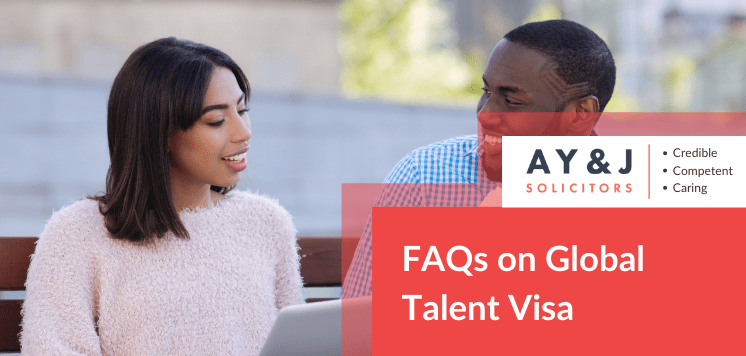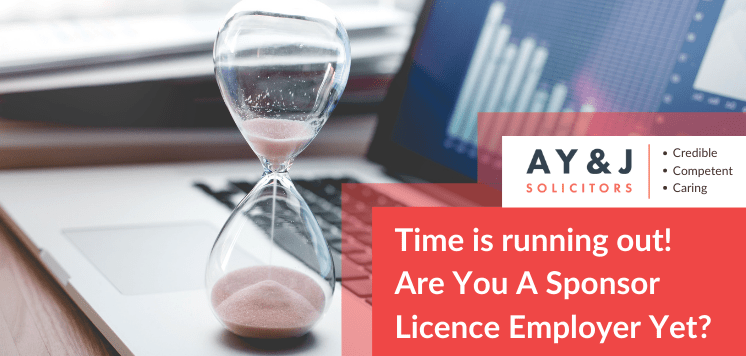Disclaimer: The information in this blog is accurate as of its publication date. Any updates after that date are not reflected here.
1. Is the Global Talent Visa under the points-based system?
No, the Global Talent Visa does not require any target points to achieve like in Skilled Workers Route. The Global Talent Visa is a type of visa which welcomes talents from all over the world to engage and participate in the UK’s ever-growing economy. Each applicant is expected to prove to the endorsing body a successful career history as an innovator in their respective fields:
- as a recognised leader (exceptional talent)
- as an emerging leader (exceptional promise)
2. How many Global Talent Visas will be granted annually?
According to the UK government, the Global Talent visa route will have no cap on the number of migrants coming to the UK, indicating the government’s assurance to support top talent. Formerly, there was a 2000 annual limit on visas available.
3. Can I appeal if the endorsing body refuses my endorsement application?
Or What should I do if my Global Talent Endorsement is refused?
Yes, you can appeal if your GTV endorsement is refused. You can Apply for a Global Talent Visa Endorsement Review from the relevant endorsement body. At A Y & J Solicitors, we are specialists at turning over refusals on endorsements. Our team will take the time to carefully evaluate the reasons why your endorsement application was refused and guide you on the best action to take.
4. What are the differences between Global Talent Visa & Tier 1 Exceptional Talent/Promise visa?
The most notable differences between the two are that unlike the Tier 1 Exceptional Talent visa; Global Talent Visa does not rely on Points Based Immigration system and there is no cap on the number of immigrants coming to the UK through this visa.
5. Can I Continue Living in the UK while my endorsement application is under consideration?
Remember that your application for endorsement does not automatically extend your current leave/visa you’re holding in the UK while it is under consideration. If your visa i.e. ‘leave to remain’ expires while you are waiting for endorsement, you have to leave the UK otherwise you will be considered an overstayer in the UK. Check if there are any concessions provided by the government, due to Covid 19 and you may be able to continue to live in the UK.
6. Can I settle in the UK and gain British Citizenship with a Global Talent Visa?
Yes, successful applicants of Global Talent Visa can live and work in the UK for up to 5 years and later they can apply for Indefinite Leave to Remain (ILR) and eventually for British Citizenship.
7. What documentation do I need to provide when applying for a Global Talent Visa?
In order to get entry through the Global Talent Visa, then you have to submit the following documents:
- Your endorsement letter
- A current passport or other valid travel documents
- Your tuberculosis test results if you come from a country where you are required to take the test
- UK Visas and Immigration (UKVI) can also ask for other documentation.
Remember to have a blank page in your passport for your visa. If the documents are not in English or Welsh, then you must provide the certified translation.
8. Can I bring my family with me to the UK on a Global Talent Visa?
The UK Global Talent visa enables the applicant to take their family members with them. A dependent can be your spouse/wife, civil or unmarried partner and your child under 18.
9. Can I extend a Global Talent Visa?
Yes, it is possible but only if you can show that the body which endorsed you has not taken back their approval and you are going on to work in your field and also you have made considerable contributions in your field during your time in the UK on this visa.
You can extend your Global Talent Visa for up to five years. Just apply for an extension before the current visa expires.
10. How much does a Global Talent Visa cost?
The Main Applicant would have to pay £456 in stage one of their endorsement application and £152 for their stage 2 Visa application plus £624 per year per person OR £470 per year per child under 18 years old for Immigration Health Surcharge. If bringing any dependents with them then they additionally have to pay £608 for all of them.
If the main applicant is from Turkey or Macedonia, then £456 will be paid with the Stage 1 Endorsement Application and £97 will be paid later with the Stage 2 Visa application plus £624 per year per person OR £470 per year per child under 18 years old for immigration health surcharge. If bringing any dependents, then they will also have to pay £608 for all of them.
Please note that, if your endorsement application is refused, the £456 endorsement fee will not be refunded by the Home Office.
11. What is the success rate of Global Talent Visa in digital technology?
In the digital technologies category, the Endorsement rates for the Global Talent Visa for exceptional talent or promise are roughly 50% – 60% which means, only one in two applicants are successful.
12. What is the role played by Endorsing Bodies?
In order to be considered for entry through Global Talent visa, applicants must have an endorsement from one of six endorsing bodies selected by the Home Office. If your application is endorsed, the final immigration decision will be made by the Home Office.
The Home Office will refer your application to Royal Society or UK Research and Innovation (UKRI), the British Academy, Royal Academy of Engineering if you are applying for endorsement in the fields of medicine, science, engineering, the social sciences or the humanities, or other academic and research roles. These bodies will make an endorsement decision based on the information you give.
13. What do you mean by ‘eminent’ person for the letter of personal recommendation?
The letter of personal recommendation which you are going to provide in support of your global Talent Visa application, should be written by an individual with internationally recognised expertise in the applicant’s field.
14. What should be mentioned in this letter of recommendations?
The letter of personal recommendation must be written by an eminent person in your field whose work is internationally recognised. The person must be aware of your work and your contribution to your field and qualified to examine your claim of Exceptional Talent or Exceptional Promise. It should be dated and include:
- Your contributions or achievements in the respective field;
- how, in the viewpoint of the eminent person, you demonstrate Exceptional Talent;
- how can you benefit from living in the UK; and
- how the eminent person recognizes you;
- the contribution you can make in research excellence for the welfare of society
Please remember that the letter of recommendation should be as detailed as possible. It will help in defining why the referee thinks you fulfill the criteria for Exceptional Talent or Promise.








